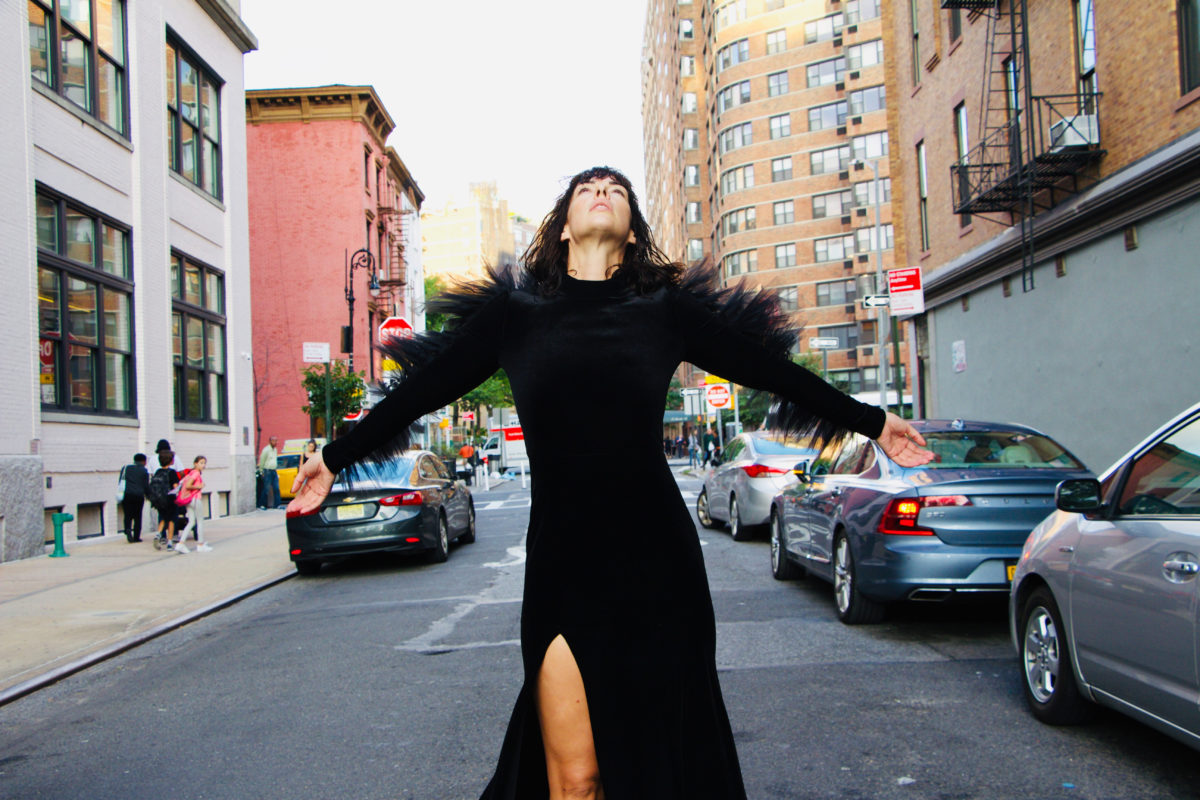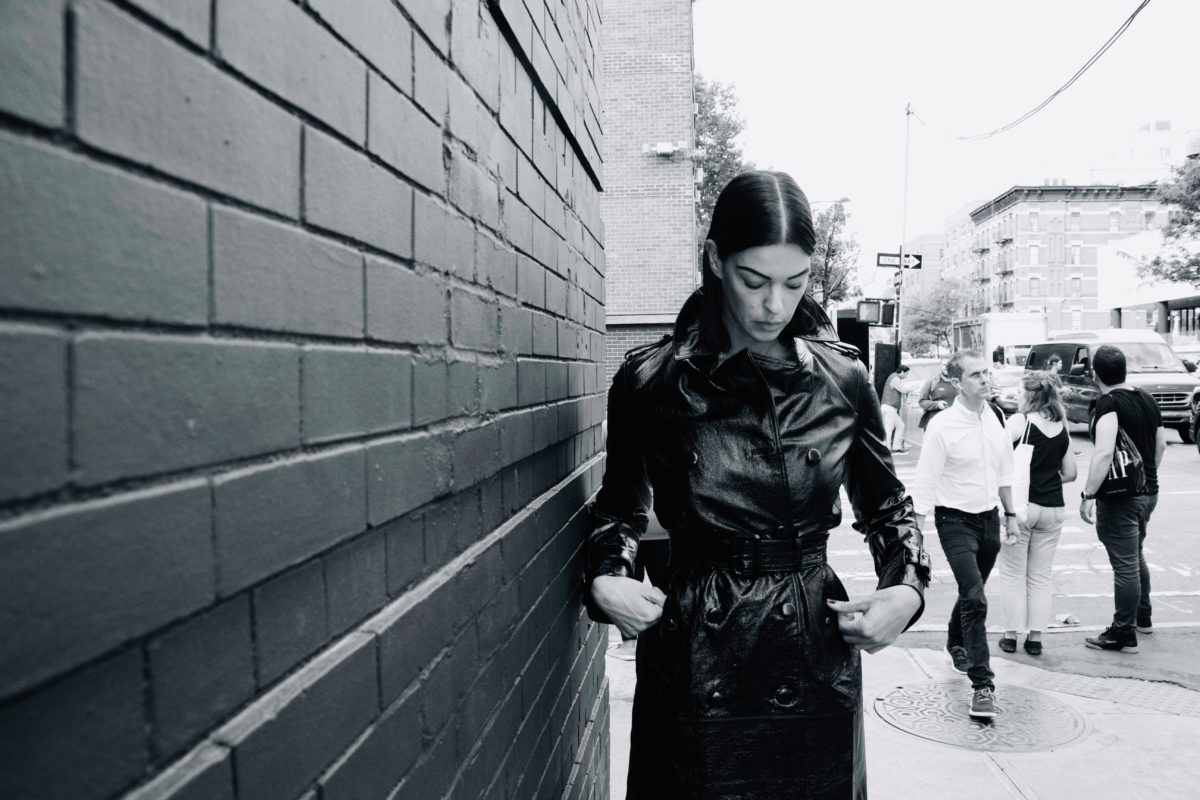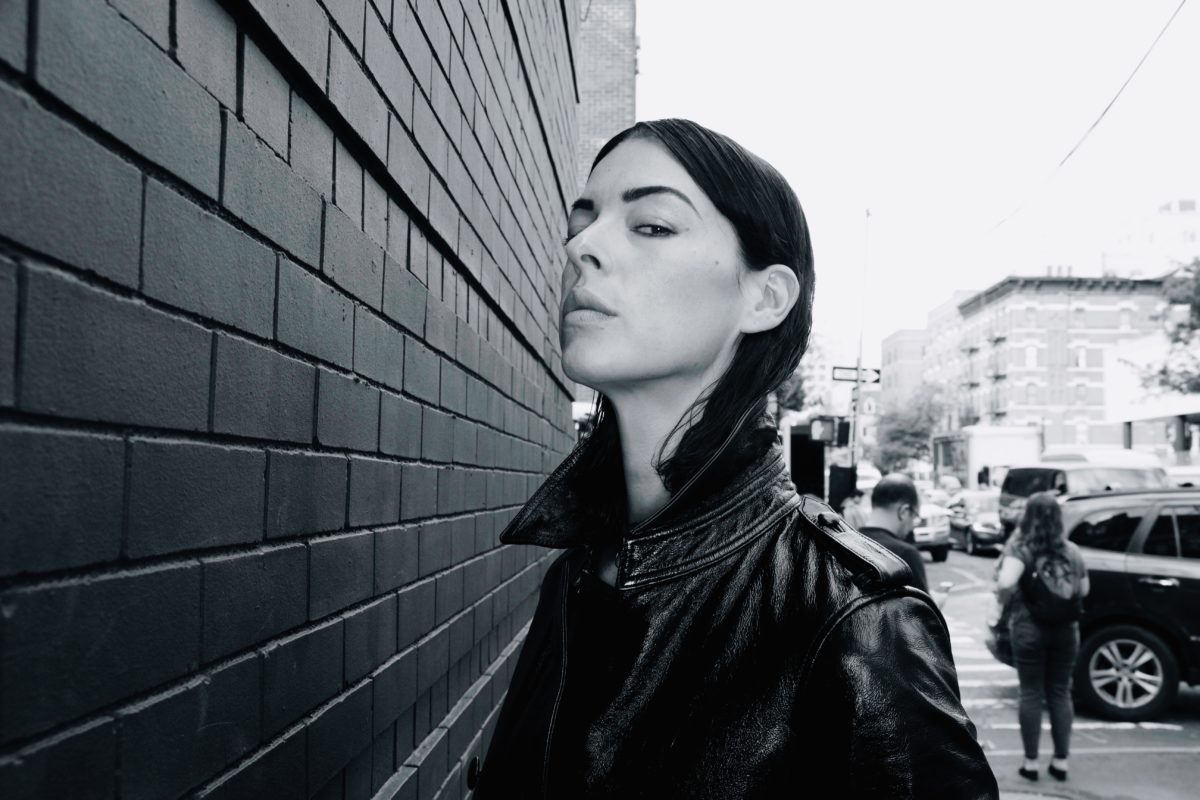
Scottish actress Pollyanna McIntosh, in her go-get-’em style, penned this piece for The Untitled Magazine. Can you say ‘Multi-talented?’ Read on!
‘Back in Black’ By Pollyanna McIntosh

I was 13 when I read The Women’s Room by Marilyn French, an American. It was the first openly feminist book I’d ever picked up. And it blew my mind. Man.
Born of the late 70’s, as I was but on the other side of the world, its bright yellow title on its jet black spine called to me from my parents’ high bookshelf winding down the spiral stairs to our basement.
The cover was a metal keyhole carved out of the circle and cross of the female symbol through which there was nothing but inky black. Under its double edged title it proclaimed, “This Novel Changes Lives.” and displayed that bespectacled, glamorous name – Marilyn French.
She told me things no one had ever talked to me about before. I dove into the fictional but all too familiar world she captured – Mira’s world and that of her friends. I wolfed down the story, unable to look away. I wondered if my mum had ever read it. I didn’t ask her.

It was 1992 and I lived in Edinburgh, Scotland. There was plenty that was hard to put into words at that age. But with my friends, internet free as we were, we found John Waters’ movies, passed around a dog eared copy of Kinflicks by Lisa Alther and reveled in rebellion. We knew the book Sex, the next logical stop on Madonna’s gynecological tour, was being released and we were dying to see it. Naomi Campbell and the supers stalked the pages of our stolen Vogues in all their high-earning glory, and British television buzzed with ballsy, brilliant comediennes (as we called them then) like French and Saunders, Victoria Wood and the beginnings of this new, openly hostile punk, Jo Brand.
Over in the US, it was The Year of The Woman with the historical numbers running for office bringing women to the polls in droves with purpose and the hopes of better representation. We had our heroes. Things were looking good.

Women’s rights should, of course, have been an issue of the past and I was so excited to own a bra that I had no intention of burning it. But still, I felt the niggle and nudge of misogyny and found it confounding, threatening. I was a girl. We all did. What could we do? In reading The Women’s Room the iniquity of the female experience was laid bare to me by a woman of my mother’s generation who was raw and wasn’t going to take it any more. Both personal and provocatively general, the novel made me fearful, almost spiraling like that staircase. But it also made me furious, and that fury made me feisty.
Thanks to Marilyn French I now had a context for my unease in the world as a teenage girl. The history she showed me meant I could begin to feel my rage rather than fear it, as I was not alone with it. Suddenly there was permission in feeling it, permission in her characters’ company, and I needed that.
Because, despite the “better” time I lived in, I was facing down the bile of diminishing abusive language in the street, whispered under the breath of grown men in the day time or yelled at me by the same at night, fueled by alcohol and the cover of darkness. There was danger in what you wore, danger in being alone, danger in just being female.

There were pervy teachers looking down our tops and guys jerking off on buses we only shuffled away from, afraid of worse. Now I looked those fuckers in the eye. I was determined to be dangerous myself.
I looked for other writers like French, for other women willing to express their true experience and to break out of it on a gleeful adventure like Erica Jong in Fear of Flying or with murderous revenge like Virginie Despentes with her film Baise-Moi.
I found a clarion call in Just a Girl by Gwen Stefani, dressed in her cargo pants and sports bra, topped off with bunches singing, “Oh! I’ve had it up to here!” with boundless energy and a body that could slam you down if she wanted to. That came out in 1994, 25 years ago.

Clearly the fight for our rights isn’t over and there are many who are trying to reverse the recent progress made by the #MeToo movement and the brave women speaking their truth against Trump’s self serving cronies in his sexual abusers club.
Watching his fragile ego fronting, riling up his rally crowd’s lowest and easiest route to false empowerment, through bullying and jeering of Dr Ford’s statement as she fulfilled her challenging civic duty, was a low point that impacted millions of survivors. That young girls and boys hear this babyish bile from an unhinged man who nonetheless is the leader of the “free world” is a trauma we must counter. We cannot go back to silence and meekness in the face of abuse. It is too much to ask our children to swallow.

We must recognize and celebrate our sharing and airing of our furies. For showing our teeth was and still is not only fair but necessary for change.
For me it starts with not having to be pleasing to others’ needs and expectations before my own. It means owning my feelings. And it means empowering myself with boxing and fighting techniques to defend, but also to attack back hard. I don’t want to be mad as hell but I sure as shit ain’t going to take it anymore.
We are not “just” girls, we are girls and women demanding we be treated equally and have agency as a valid 50.8% of the voting and consumer population. We are powerful. We need not apologize for it. History shows us we’ve carried enough shame that was never ours to bear.
Right. Where’s that bra and lighter?
Words: Pollyanna McIntosh (visit Pollyanna’s favorite charity – Joshua Nolan Foundation)
Photography and Makeup by Tina Turnbow
Styling: Cat Pope


